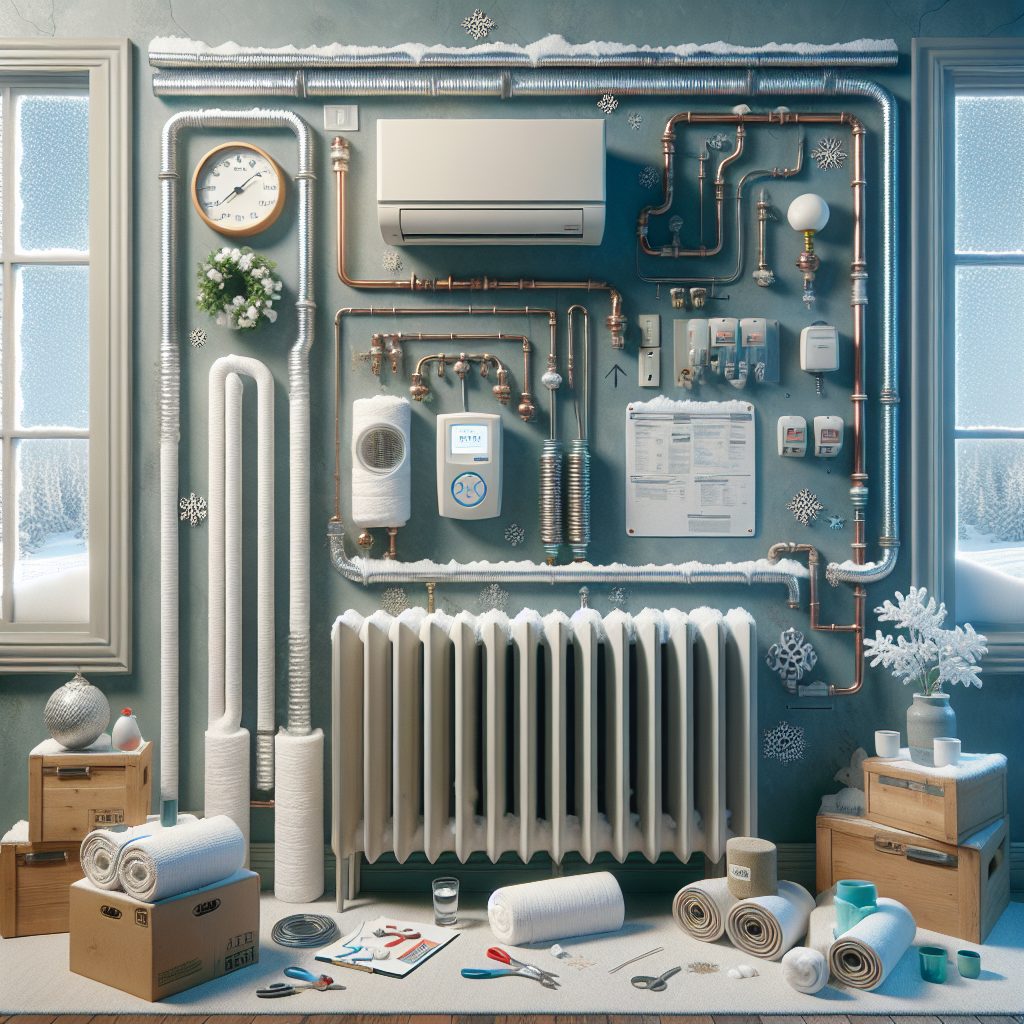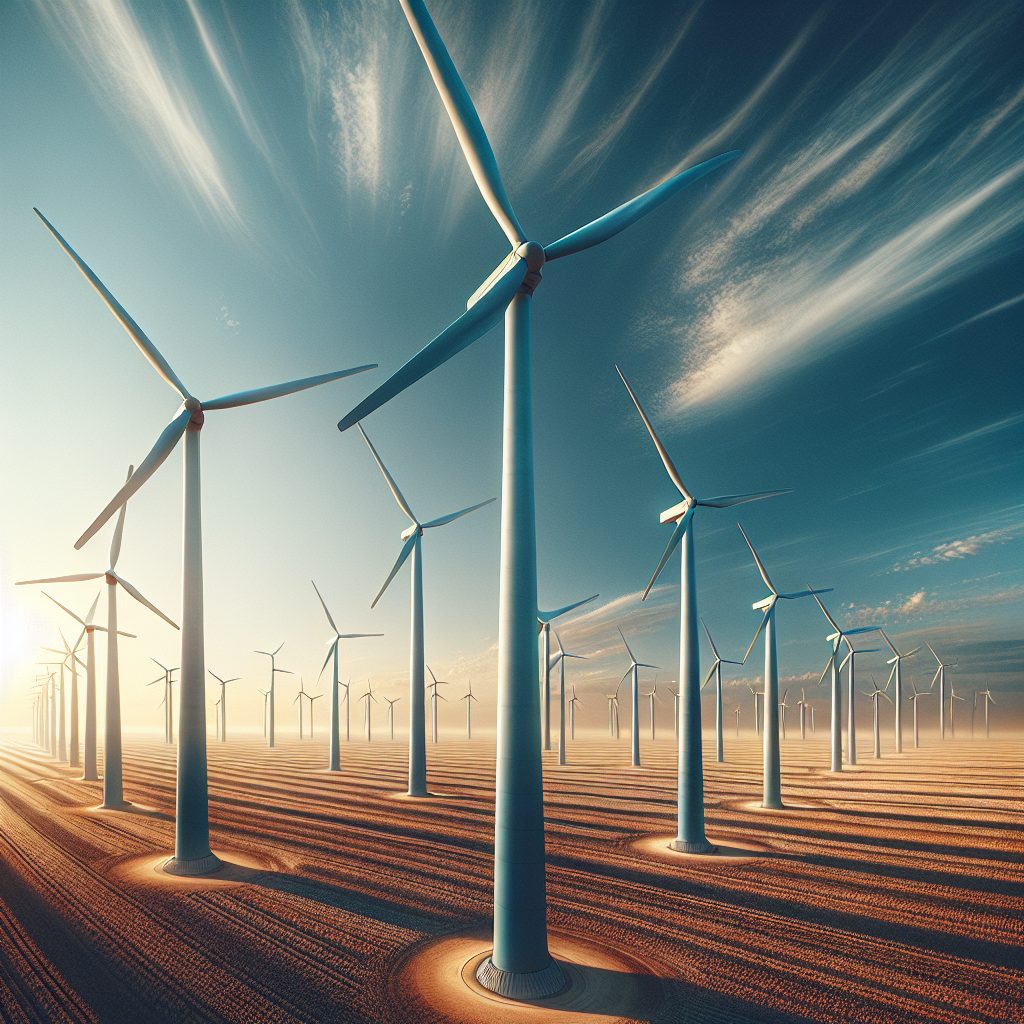
Winter is a season that brings with it extreme temperature changes. That’s why having a reliable HVAC system is essential to keep everyone comfortable and warm during the long winter months. However, without the proper winterizing HVAC systems can be prone to malfunctions and energy wastage. Luckily, there are a few tips and tricks homeowners can use to ensure that their HVAC system is running up to its full potential all throughout the winter season.
One of the best winterization tips for maintaining a HVAC system is to have it serviced and professionally inspected by a licensed HVAC technician. An inspection is especially important prior to the cold season, as this will help identify any potential problems and ensure that your system is running efficiently and safely. It is also important to replace any cracked seals or air filters, as this can lead to wasted energy and reduced system performance. And don’t forget to check the ductwork for any leaks or blockages. A blocked duct can reduce airflow and result in a highly inefficient system. Taking the time to follow these simple winterizing steps can help you to get the most out of your HVAC system.
Key Takeaways
1. HVAC systems should be regularly inspected and serviced to ensure its optimal functioning and efficiency.
2. Proper air filtration is an important factor for the maintenance of the system. Air filters should be checked and changed at regular intervals.
3. Utility bills should be monitored in order to prevent wasted energy expenditure.
4. Invest in preventive maintenance every season so as to minimize the chances of costly repairs in the long run.
5. Use a licensed and qualified HVAC contractor to ensure proper repairs and service to the system.
How Can I Easily Winterize My HVAC System?
Inspect Your HVAC System
Before you start winterizing your HVAC system it’s of utmost importance to do a thorough inspection of the system and replace or repair any worn components. You should check the air filters, condenser coils, compressor and other components during the inspection. If your system is aged, often over five years, you should speak to a professional HVAC technician to inspect the system and advise on any repairs or replacements needed.
Clean the System
Your HVAC system should be serviced and cleaned thoroughly before it is winterized. A large accumulation of dirt and debris can reduce the efficiency of the system and increase the risk of malfunction. You should vacuum your indoor and outdoor coils properly and replace the air filters with new ones. Having a clean system can also save you from unexpected repair costs later on.
Protect Outdoor Components
The outdoor components of your HVAC system are vulnerable to freezing temperatures, snow and ice during the winter. These need to be protected with insulation. Wrap the pipes, lines and condenser coil in insulation so that the heat generated from the indoor space does not escape. Cover the outdoor compressor with rubber foam layer for additional protection.
Install a Programmable Thermostat
A programmable thermostat is a great way to effectively manage your HVAC system during the winter. This will allow you to set the thermostat to a lower temperature when you are asleep or away from home. You’ll be able to schedule the thermostat to a comfortable temperature a few minutes before you come home. This way, you can enable your HVAC system to be energy efficient and save on energy costs.
Tips for Winterizing Your HVAC System:
- Inspect your HVAC systems for any worn or faulty components.
- Thoroughly clean your HVAC system of dirt and debris.
- Make sure to insulate all the outdoor components for protection from the cold.
- Install a programmable thermostat to manage your HVAC system.
What Should Be Included in My HVAC System Winterization?
Winterizing an HVAC system is important to ensure the best performance from the system throughout the winter. The winterization process should include checking the air filters, cleaning the condensate drain line, checking and lubricating the blower and motor bearings, checking the airflow and verifying the thermostat is working correctly.
What Is the Best Time to Winterize My HVAC System?
The best time to winterize your HVAC system is before the first winter freeze. This will ensure that your system is ready for optimal performance throughout the winter season. It is essential to call a technician to inspect and winterize your HVAC system at least once a year.
Do I Need to Change the Filters in My HVAC System?
Yes, it is important to change the filters in your HVAC system regularly to ensure that the system is running efficiently and that air quality is maintained. Changing the filters should happen before the start of winter. In addition to changing the filters, you should also have the unit inspected for any potential issues.
Can I Winterize My HVAC System Myself?
Yes, you can winterize your HVAC system yourself, however it is recommended to hire a professional. Technicians have the necessary experience and expertise to inspect and winterize your HVAC system correctly. DIY tips can be found online, but it is important to make sure you are following correct and up-to-date safety protocols when servicing the system.
How Do I Know If My HVAC System Needs Winterization?
If your HVAC system has not been winterized in the last two years then it is likely your system needs winterization. Additionally, if your system is not running as it should and you have noticed an increase in your energy bills, then you should likely consider winterizing your system.
Do I Need to Have an HVAC Technician Inspect My System Prior to Winterization?
Yes, it is important to hire a professional to inspect your HVAC system prior to winterization. This way the technician can catch any potential issues and make sure that the system is ready for the winter season.
What Kind Of Maintenance Do I Need to Do During the Winter?
It is important to do regular maintenance during the winter, such as cleaning or replacing air filters, checking thermostat settings, and making sure that the unit is not blocked by snow. Additionally, if you notice any issues with the system you should contact an HVAC technician immediately.
Does Winterizing My HVAC System Help to Save Money?
Yes, winterizing your HVAC system will help to save money on your energy bills. When your system is running efficiently it will operate more efficiently and use less energy. Additionally, regularly checking and cleaning the air ducts, filters, and components will also help increase the efficiency of the system.
Where Can I Find Tips For Winterizing My HVAC System?
You can find tips for winterizing your HVAC system online or in magazines, or you can speak to a professional HVAC contractor. Additionally, there are many video tutorials available online that can help you walk through the process of winterizing the system.
Can I Use a Dehumidifier To Help with My HVAC System?
Yes, you can use a dehumidifier to help with your HVAC system. Dehumidifiers can help reduce the amount of moisture in the air, which can help to increase the efficiency of the system, and reduce the risk of mold and mildew growth inside the unit.
What Steps Can I Take to Ensure My HVAC System Is Ready for Winter?
There are a few steps you can take to make sure your HVAC system is ready for winter. This includes changing the air filters, cleaning the coils, checking the thermostat, and having an HVAC technician inspect and winterize the system. Additionally, you should check for any air leaks and make sure that the system is not blocked by snow or debris.
Final Thoughts
Regularly winterizing your HVAC system is essential in order to ensure best performance throughout the winter. In order to get the best efficiency from the system, you should make sure to have a professional inspect and winterize your system at least once a year. Additionally, DIY tips and resources are available online, however it is advised to have the system checked by a professional.
Taking proactive measures and winterizing your HVAC system may require an initial outlay of money, however it can be very beneficial in the long-term. By taking these proactive measures, you can ensure that your system is ready to face the harsher winter temperatures and provide a comfortable living environment for you and your family.



